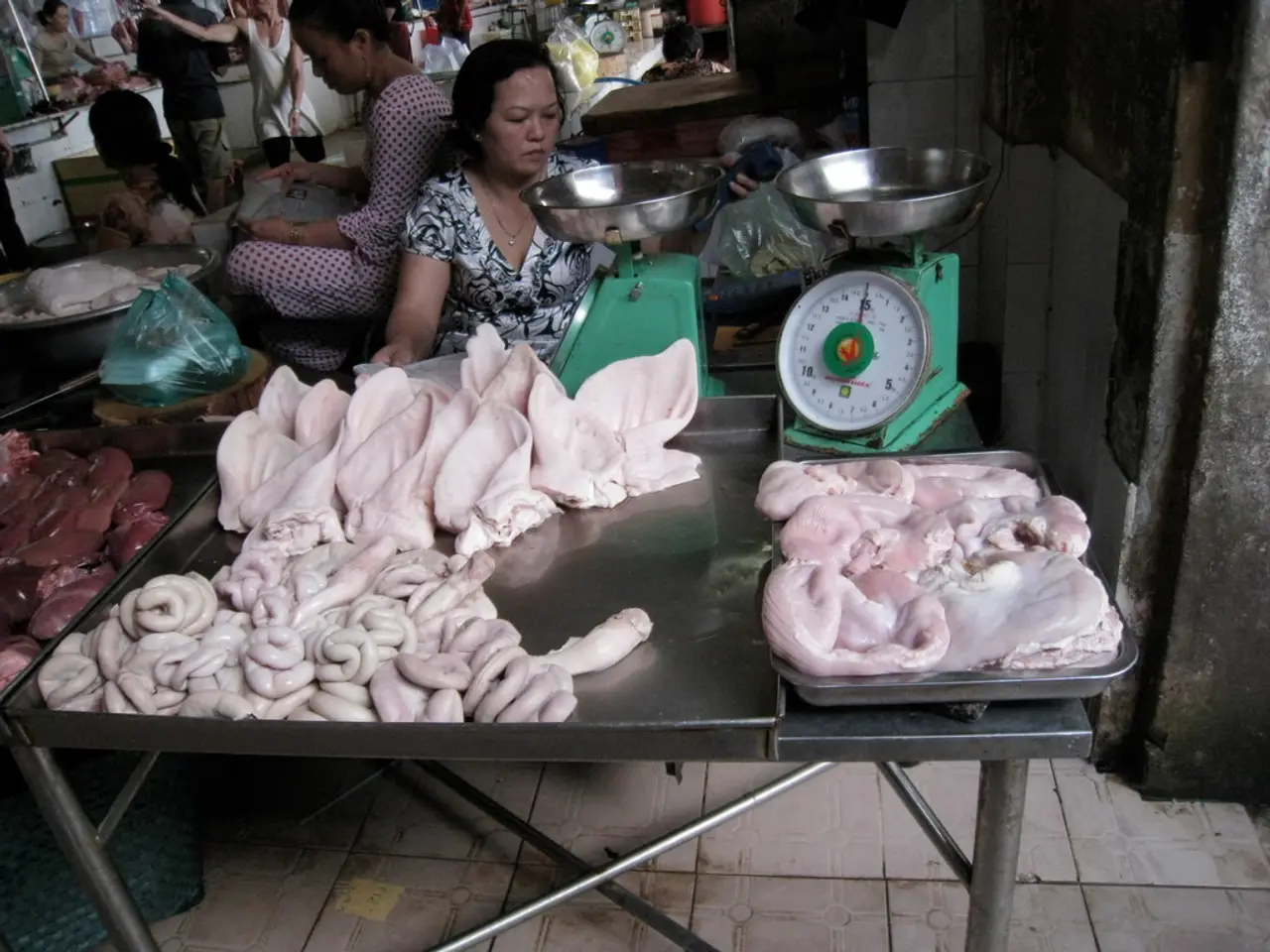Animal Agriculture Alliance's Activist Tracking Sparks Privacy Concerns
The Animal Agriculture Alliance (AAA), backed by the US livestock industry, has been making waves in policy and sparking concern among animal welfare activists. The organisation, which tracks over 2,400 activists, has successfully influenced policies and gained significant influence within law enforcement agencies.
AAA's impact on policy is evident in the introduction of 'ag-gag' laws in 12 states. These laws criminalise unauthorised recording or photography at animal farms, a move that activists argue stifles transparency and investigative journalism. AAA's lobbying efforts have also led to the consideration of animal rights activists as a bioterrorism threat by the FBI and the Department of Homeland Security.
The organisation's influence extends to local politics. It successfully persuaded a mayor to withdraw support for a Meatless Mondays campaign, demonstrating its ability to sway public opinion and policy at various levels. However, these actions have sparked fear among activists, who worry about being convicted or labelled as terrorists.
AAA's tactics include sharing personal information about activists, including their biological ties and relationships, with industry members and law enforcement. This practice has raised concerns about privacy and safety among activists. The organisation's database, which tracks over 2,400 activists, maps 'biological or marriage' ties between members of prominent animal welfare groups and labels some non-profits as 'high risk'.
Experts worry that surveillance tactics against animal welfare activists could increase under a second Trump presidency, given AAA's direct line to staff at the FBI and the Department of Homeland Security.
The Animal Agriculture Alliance, with its extensive tracking of activists and influence over policy and law enforcement, has become a significant force in the animal welfare debate. Its actions have sparked concern among activists and raised questions about privacy, transparency, and the balance of power in the industry. As the organisation continues to shape policy and public opinion, its role will undoubtedly remain a contentious issue in the ongoing conversation about animal rights and welfare.
Read also:
- Abu Dhabi initiative for comprehensive genetic screening, aiming to diagnose over 800 conditions and enhance the health of future generations in the UAE.
- Elderly shingles: Recognizing symptoms, potential problems, and available treatments
- Protecting Your Auditory Health: 6 Strategies to Minimize Noise Damage
- Exploring the Reasons, Purposes, and Enigmas of Hiccups: Delving into Their Origins, Roles, and Unsolved Aspects





